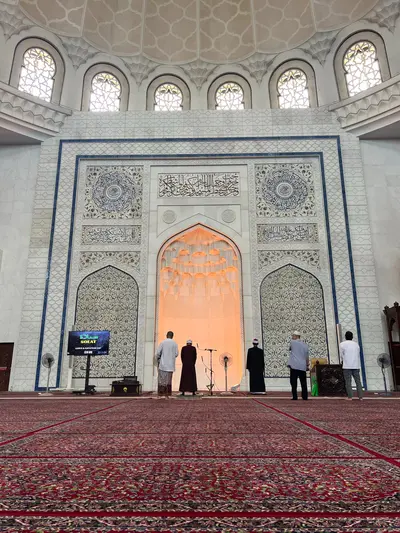
Understanding Political Islam: A Comprehensive Overview Crédit d'image :
Publié le 26 avril 2024, par Samir | 17 h 32 min
Temps de lecture : 4 minutes
Political Islam is a term that has gained significant prominence in recent years, often sparking debates and discussions around the world. It’s a complex and multifaceted concept encompassing various ideologies, movements, and interpretations within the Islamic world. This blog post will delve deep into the meaning of political Islam, its historical roots, fundamental ideologies, and its impact on contemporary politics. Defining Political IslamPolitical Islam, often called Islamism, is a broad term that describes the fusion of religion and politics within the Islamic context. At its core, it signifies the belief that Islam is a personal faith and a comprehensive system that should govern all aspects of society, including law, governance, and public policy. Historical RootsThe roots of political Islam can be traced back to the early days of Islam. The establishment of the Islamic state by the Prophet Muhammad in the 7th century laid the foundation for the intertwining of religion and governance. However, the concept gained momentum in the 20th century, particularly with the rise of the Muslim Brotherhood in Egypt in 1928. Since then, various Islamic movements and ideologies have emerged, each with its interpretation of how Islam should be implemented in political and social spheres . Fundamental Ideologies of Political IslamIslamism: This overarching ideology encompasses all forms of political Islam. Islamists advocate for applying Islamic principles and Sharia law in the governance of Muslim-majority countries. Islamic values should guide legislation, public policy, and social norms. Salafism: Salafism is a conservative strain of Islamism that seeks to emulate the practices and beliefs of the early Islamic generations (the Salaf). It often rejects modern interpretations of Islam and emphasizes strict adherence to the Quran and Hadith (sayings and actions of the Prophet Muhammad). Jihadism: Jihadism represents the most extreme and militant interpretation of political Islam. Jihadist groups, such as Al-Qaeda and ISIS, advocate for violence to establish Islamic states and resist what they perceive as Western influence in Muslim-majority countries. Islamic Democracy: Some political Islamists believe in a more moderate form of governance, advocating for Islamic principles within a democratic framework. They argue that democracy can coexist with Islamic values, allowing for the peaceful transition of power through elections. Impact on Contemporary PoliticsPolitical Islam has profoundly impacted contemporary politics in many Muslim-majority countries. Some Islamist parties have achieved electoral success, while others have been involved in armed conflicts and terrorism. The influence of political Islam extends beyond the Middle East and North Africa, as it has also played a role in shaping the political landscape in countries with significant Muslim minorities. While we’ve touched upon the definitions, historical roots, and fundamental ideologies of political Islam, it’s essential to delve further into its impact on various aspects of society and its relationship with the broader world. 1. Impact on SocietyPolitical Islam has often led to significant changes within societies where it gains influence. Advocates argue that implementing Islamic principles promotes justice, morality, and social cohesion. However, critics contend that it can also restrict personal freedoms, particularly when enforcing a strict interpretation of Sharia law. Issues such as women’s rights, freedom of expression, and religious minorities’ rights are often scrutinized in societies influenced by political Islam. 2. Global InfluenceThe global reach of political Islam is notable, with international organizations, governments, and scholars closely monitoring its developments. While many Islamist movements operate primarily within their own countries, others have a transnational agenda. For example, Al-Qaeda and ISIS have launched attacks and spread their ideologies across borders, making them global security concerns. 3. Challenges and ControversiesThe relationship between political Islam and democracy has been intensely debated. While some Islamist parties have participated in democratic processes and won elections, others have been accused of using democratic means to gain power and undermine democratic institutions. Striking the right balance between Islamic values and democratic principles remains challenging in many Muslim-majority nations. 4. Counterterrorism MeasuresThe rise of jihadist groups, including Al-Qaeda and ISIS, has led to extensive counterterrorism efforts by governments worldwide. These groups exploit grievances, recruit disaffected individuals, and engage in acts of terrorism, posing a threat to global security. Combating terrorism while respecting civil liberties and human rights remains a delicate balancing act for governments. 5. Evolving InterpretationsIt’s important to note that political Islam is not a monolithic entity; interpretations and approaches vary widely. While some movements aggressively oppose the West and advocate for establishing Islamic states, others emphasize peaceful coexistence and dialogue. 6. Regional VariationsPolitical Islam takes on different forms and priorities depending on the region. For instance, in Iran, the Islamic Revolution in 1979 led to the establishment of an Islamic Republic, while in Turkey, the ruling Justice and Development Party (AKP) sought to balance Islamic values with democratic governance. Political Islam is a dynamic and multifaceted phenomenon with significant implications for societies, governance, and international relations. It represents various ideologies and movements, from those advocating for peaceful coexistence within a democratic framework to those pursuing militant jihadism. Understanding the nuances of political Islam is essential for addressing the challenges and opportunities it presents in today’s interconnected world. As it continues to shape the political landscape of Muslim-majority nations and influence global dynamics, scholars, policymakers, and the public must engage in informed discussions and debates to navigate these complex issues effectively. |
mar. 8 Sha'bane
الثلاثاء 8 شعبان |
| Contact | Mentions légales | A propos | Ressources | Blog | Glossaire | Questions réponses sur l'islam |
| Devenir musulman - Islam et terrorisme - Se convertir à l'islam - Prénom musulman - Roqya |
| English : al hamdulillah | Arabic : الحمد الله al-hamdoulillah.com © 2026 |